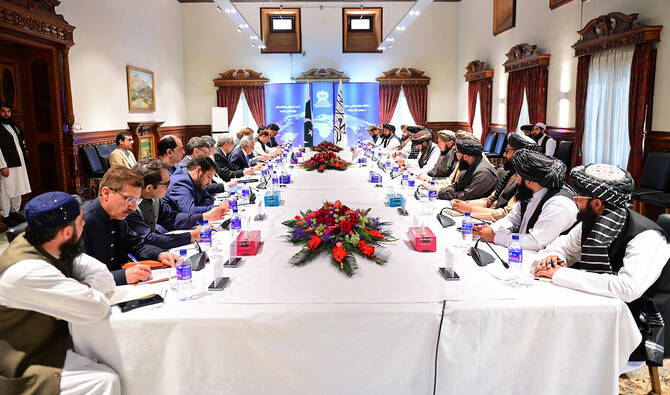ISLAMABAD: President Dr. Arif Alvi said on Wednesday the ongoing war in Gaza was an “alarming sign of the apathy of the world,” adding that the modern world needed an approach based on “love, empathy, and forgiveness.”
Israeli warplanes bombarded targets across the densely populated coastal territory on Wednesday in one of the heaviest phases of fighting in the two months since Israel began its military campaign in Gaza in October. Palestinian medics said hospitals were overflowing with the dead and wounded, many of them women and children, and supplies were running out. Hundreds of thousands of displaced people driven out of the north were seeking shelter in the dwindling number of places designated as safe areas by Israel. Gaza’s health ministry has confirmed over 15,800 dead and thousands missing, feared buried beneath the rubble, since the war began.
After largely gaining control of northern Gaza, Israeli troops and tanks pushed further south and encircled Khan Younis in the south after a week-long truce collapsed last week.
“The civilized world today has forgotten the principles of morality and is witnessing the prevalence of wars waged by powerful against weaker segments,” Alvi said while addressing the inaugural session of the Islamabad Conclave 2023, themed, ‘Pakistan in a Changing World’ organized by the Institute of Strategic Studies Islamabad (ISSI).
“The situation in Gaza is an alarming sign of the apathy of the world which could not stop the massacre of innocent people including women and children.”
The president regretted that the “gruesome images” coming out of Gaza had failed to “awaken the world’s conscience.”
“The current world urgently requires an approach centered on love, empathy, and forgiveness,” he added.
Pakistan’s Special Representative to Afghanistan, Ambassador Asif Durrani, said the conflict between Hamas, which rules Gaza, and Israel had diverted global attention from war-torn Afghanistan, where over 95 percent of the population was living below the poverty line.
“For instance, humanitarian assistance promised last year was close to $4.2 billion and only one part of that has been committed and has actually been materialized,” Durrani said in his address at the conference.
Yara Mourad, Assistant Director of AUB Issam Fares Institute for Public Policy and International Affairs at the American University of Beirut, said the war by Israel had jeopardized growing stability in the Middle East.
“Following the reconciliation between Saudi Arabia and Iran and the establishment of relationships between the Kingdom and the United Arab Emirates with Qatar, this conflict, the most severe since Naqba [1948], has placed the region in greater danger than ever before,” she said.



















